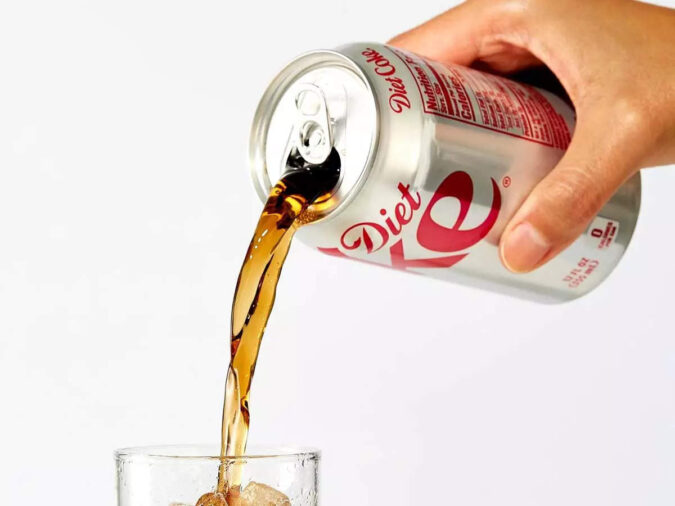The sweetener aspartame is a “possible carcinogen” but it remains safe to consume at already-agreed levels, two groups linked to the World Health Organization declared on Friday. The rulings are the outcome of two separate WHO expert panels, one of which flags whether there is any evidence that a substance is a potential hazard, and the other which assesses how much of a real-life risk that substance actually poses.
The declaration of a cancer risk associated with aspartame reflects the first time the prominent international body has weighed in publicly on the effects of the nearly ubiquitous artificial sweetener. Aspartame has been a contentious ingredient for decades. Aspartame, one of six sweeteners approved by US regulators, is found in thousands of products, from packets of Equal to sugar-free gum, diet sodas, teas, energy drinks and even yogurts. It is also used to sweeten various pharmaceutical products.
In a press conference ahead of the announcement, the WHO’s head of nutrition, Francesco Branca said: “If consumers are faced with the decision of whether to take cola with sweeteners or one with sugar, I think there should be a third option considered – which is to drink water instead,” Branca said.
WHO’s Cancer arm, International Agency for Research on Cancer (IARC), said it based its conclusion that aspartame was a “possible carcinogen” on limited evidence from three observational studies of humans that the agency said linked consumption of artificially sweetened beverages to an increase in cases of liver cancer – at levels far below a dozen cans a day.
IARC does not take into account how much a person would need to consume to be at risk, which is considered by a separate panel, the WHO and Food and Agriculture Organization (FAO) Joint Committee on Food Additives (JECFA). After undertaking its own comprehensive review, JECFA said that it did not have convincing evidence of harm caused by aspartame, and continued to recommend that people keep their consumption levels of aspartame below 40mg/kg a day. The WHO has previously determined that an adult weighing 70kg can consume 9 to 14 cans of soda daily, each containing 200 to 300mg of aspartame.
The US Food and Drug Administration, which approved aspartame decades ago, on Thursday issued an unusual criticism of the global agency’s findings and reiterated its longstanding position that the sweetener is safe. It said it “disagrees with IARC’s conclusion that these studies support classifying aspartame as a possible carcinogen to humans.” The FDA also said that “aspartame being labeled by the WHO as ‘possibly carcinogenic to humans’ does not mean that aspartame is actually linked to cancer.”
The declaration of a cancer risk associated with aspartame reflects the first time the prominent international body has weighed in publicly on the effects of the nearly ubiquitous artificial sweetener. Aspartame has been a contentious ingredient for decades. Aspartame, one of six sweeteners approved by US regulators, is found in thousands of products, from packets of Equal to sugar-free gum, diet sodas, teas, energy drinks and even yogurts. It is also used to sweeten various pharmaceutical products.
In a press conference ahead of the announcement, the WHO’s head of nutrition, Francesco Branca said: “If consumers are faced with the decision of whether to take cola with sweeteners or one with sugar, I think there should be a third option considered – which is to drink water instead,” Branca said.
WHO’s Cancer arm, International Agency for Research on Cancer (IARC), said it based its conclusion that aspartame was a “possible carcinogen” on limited evidence from three observational studies of humans that the agency said linked consumption of artificially sweetened beverages to an increase in cases of liver cancer – at levels far below a dozen cans a day.
IARC does not take into account how much a person would need to consume to be at risk, which is considered by a separate panel, the WHO and Food and Agriculture Organization (FAO) Joint Committee on Food Additives (JECFA). After undertaking its own comprehensive review, JECFA said that it did not have convincing evidence of harm caused by aspartame, and continued to recommend that people keep their consumption levels of aspartame below 40mg/kg a day. The WHO has previously determined that an adult weighing 70kg can consume 9 to 14 cans of soda daily, each containing 200 to 300mg of aspartame.
The US Food and Drug Administration, which approved aspartame decades ago, on Thursday issued an unusual criticism of the global agency’s findings and reiterated its longstanding position that the sweetener is safe. It said it “disagrees with IARC’s conclusion that these studies support classifying aspartame as a possible carcinogen to humans.” The FDA also said that “aspartame being labeled by the WHO as ‘possibly carcinogenic to humans’ does not mean that aspartame is actually linked to cancer.”
